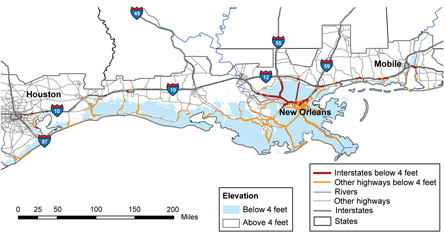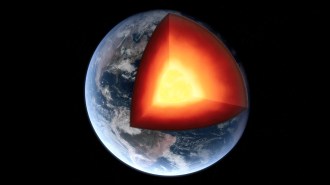WASHINGTON — Climate change is already having detrimental effects in the United States, and those effects are probably going to get worse, a new federal study suggests.

The U.S. Global Change Research Program released the report, titled “Global Climate Change Impacts in the United States,” June 16 during a White House-hosted press conference.
John P. Holdren, director of the White House Office of Science and Technology Policy, said the report includes the most up-to-date scientific findings on the impacts of climate change. “It is clear that climate change is happening now,” he said.
The nation’s average annual temperature has risen about 1.5 degrees Fahrenheit (0.83 degrees Celsius) over the past 50 years, said Thomas Karl, director of the National Climatic Data Center in Asheville, N.C., and lead author of the report. During that time, extreme episodes of rainfall also increased; the amount of water falling in the heaviest 1 percent of downpours in 2007 was almost 20 percent more than it was in 1958.
Climate models hint that this trend will continue, with the heaviest downpours late this century containing about 40 percent more precipitation than they do now. Those heavier downpours will lead to more flooding and waterborne diseases and will increasingly disrupt transportation, the report notes.
Transportation could especially suffer in low-lying coastal areas vulnerable to increasing sea level, the report suggests. Along the Gulf Coast alone, more than 3,860 kilometers (2,400 miles) of major roadways will be permanently inundated if sea level rises about 1.2 meters (4 feet), as some studies estimate, Holdren said.
No part of the country will be spared, authors of the report say. In the Northwest, shrinking snowpacks will reduce summertime stream flow, straining water resources. In Alaska, summers will be hotter and drier, and as a result the number of wildfires and insect infestations will increase. In the Southeast, hurricanes and sea level rise will conspire to boost damages from storm surges. A large number of ecosystems, from trout-filled streams of the Northwest to coral reefs off the Florida coasts, will suffer, as will the tourism and recreation that they support, the report suggests.
“This report stresses that climate change has immediate and local impacts,” said Jane Lubchenco, administrator of the National Oceanic and Atmospheric Administration. “It literally affects people in their backyards.”







